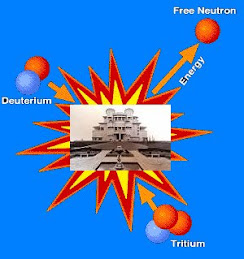Fisika lingkungan merupakan pembelajaran tentang aspek-aspek fisis dan matematis yang berhubungan dengan konsep-konsep mengenai teori lingkungan termasuk sistem ekologi dan dampak pencemaran terhadap keseimbangan alam, dampak radiasi atom-inti terhadap alam, dampak kebocoran reaktor nuklir terhadap lingkungan dan radiasi gelombang EM terhadap manusia dan makhluk hidup lainnya, dampak pemanasan global (global warming) terhadap alam serta terjadinya efek rumah kaca, penipisan lapisan ozone dapat mulai dikemas secara simple sehingga masyarakat menyadari pentingnya melindungi lingkungan yang ditinggali.
Principles of Environmental Physics |
By John Monteith, Emeritus Professor of Environmental Physics, University of Nottingham
Mike Unsworth, Oregon State University, Corvallis, USA
Description
Environmental Physics concerns the description and analysis of physical processes that establish the conditions in which all species of life survive and reproduce. The subject involves a synthesis of mathematical relations that describe the physical nature of the environment and the many biological responses that environments evoke. Environmental Physics provides a basis for understanding the complex responses of plants and animals to environmental change. International concern with climate change has made both politicans and the general public much more aware of the impact of local and global weather on all aspects of domestic life, industry and commerce.
Environmental Physics has become more widely used by biologists, atmospheric scientists and climate modellers to specify interations between surfaces and the atmosphere. This new edition contains further material on causes of global warming, applications of remote sensing, and the carbon and water cycles of crops and forests.Audience: Advanced undergraduate and graduate students in university departments of physics, atmospheric sciences, biological and environmental sciences, research scientists in agriculture, forestry, hydrology and ecology in academia, government research and industry, natural resource managers, environmental consultants and advisers in non-governmental organizations.





Tidak ada komentar:
Posting Komentar